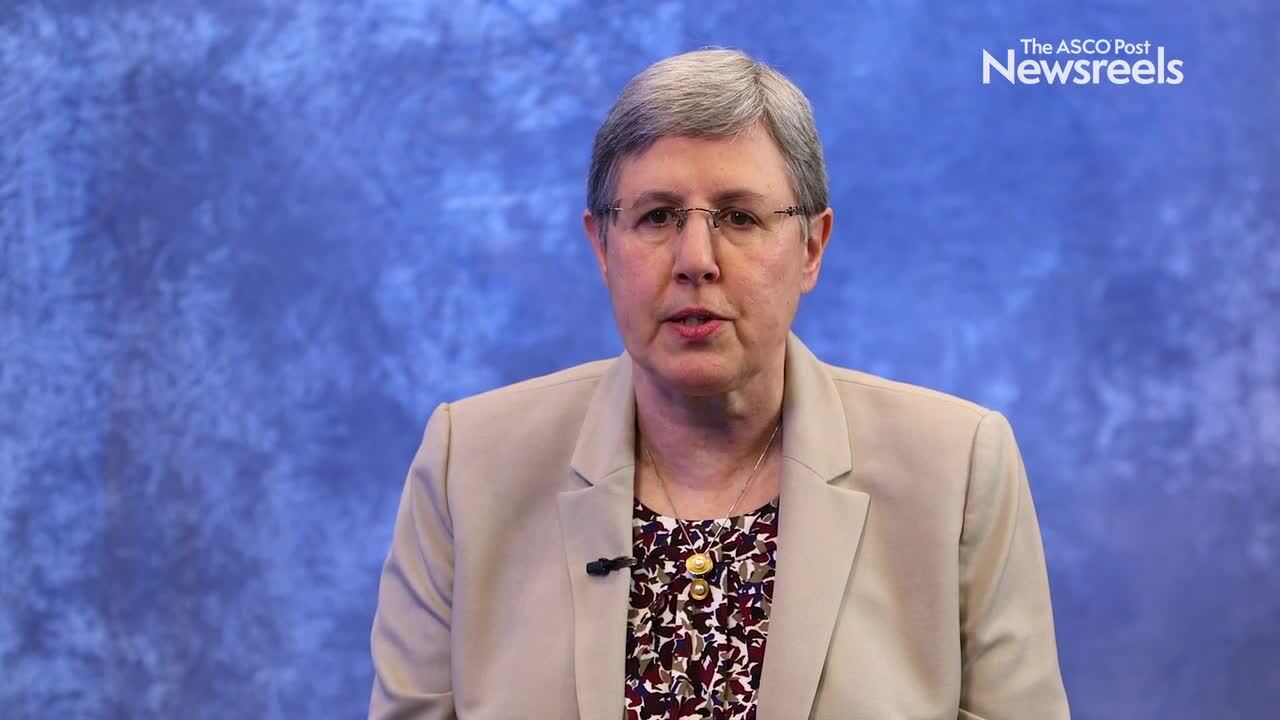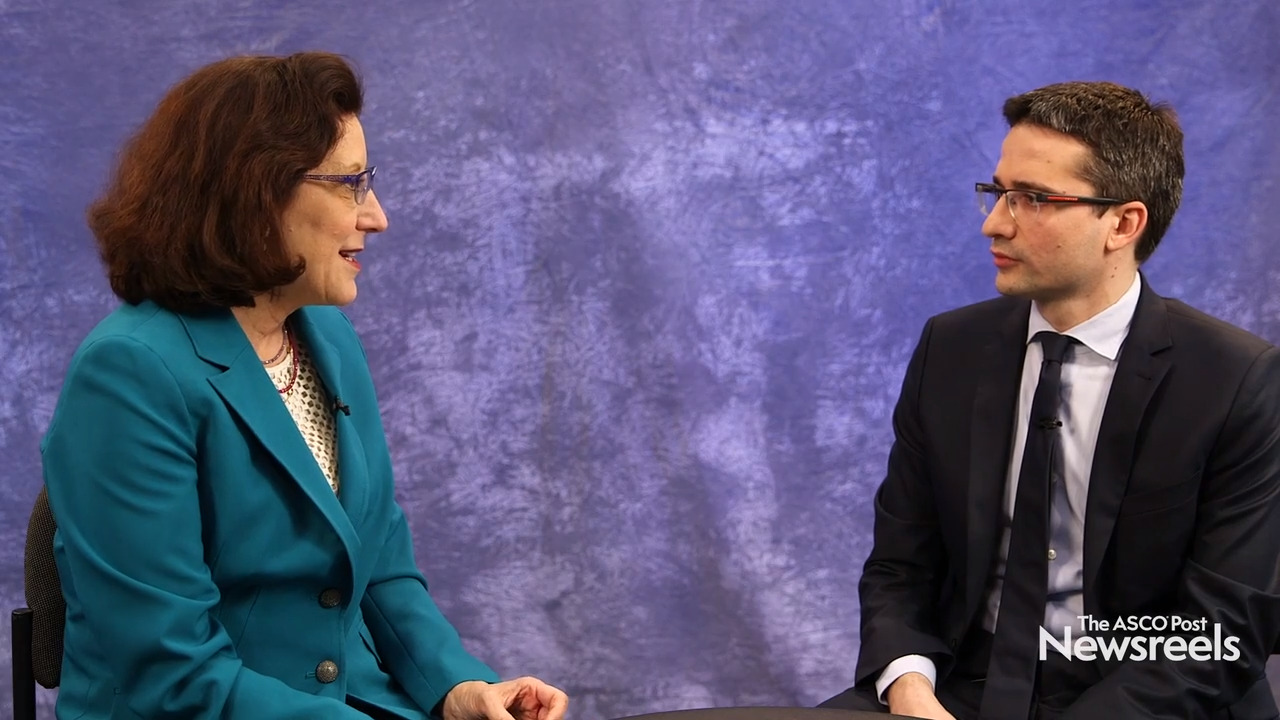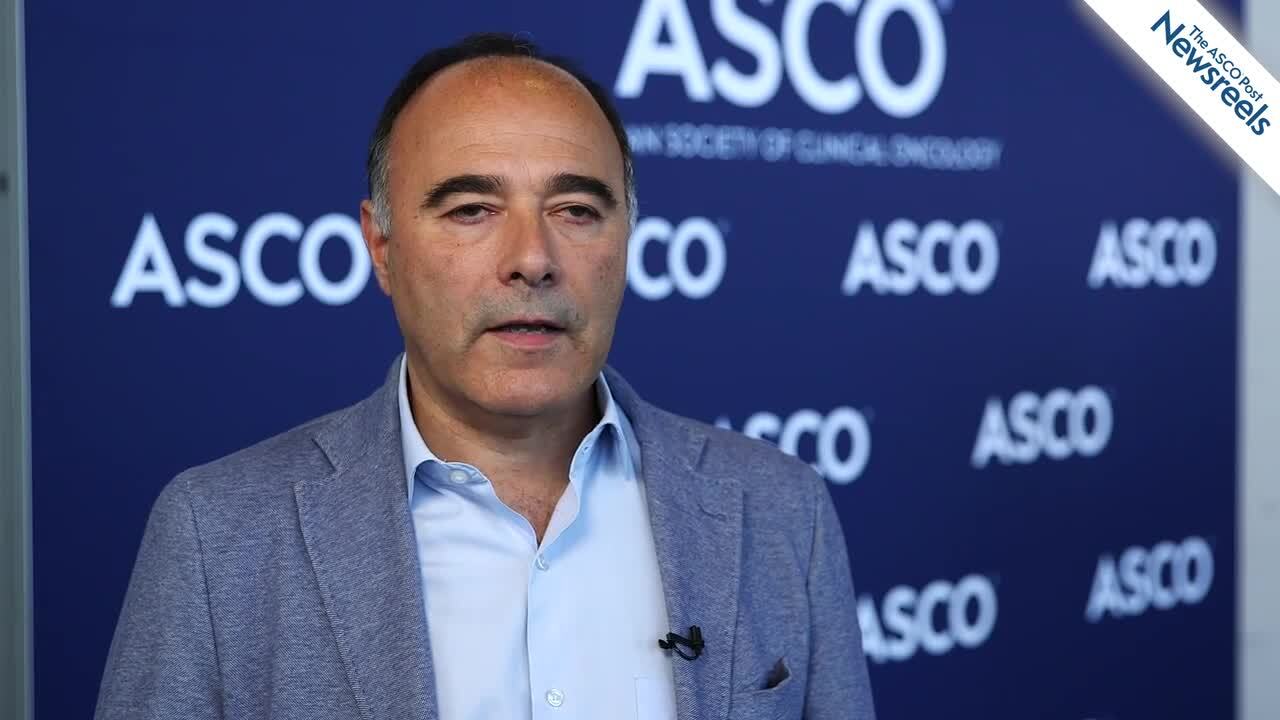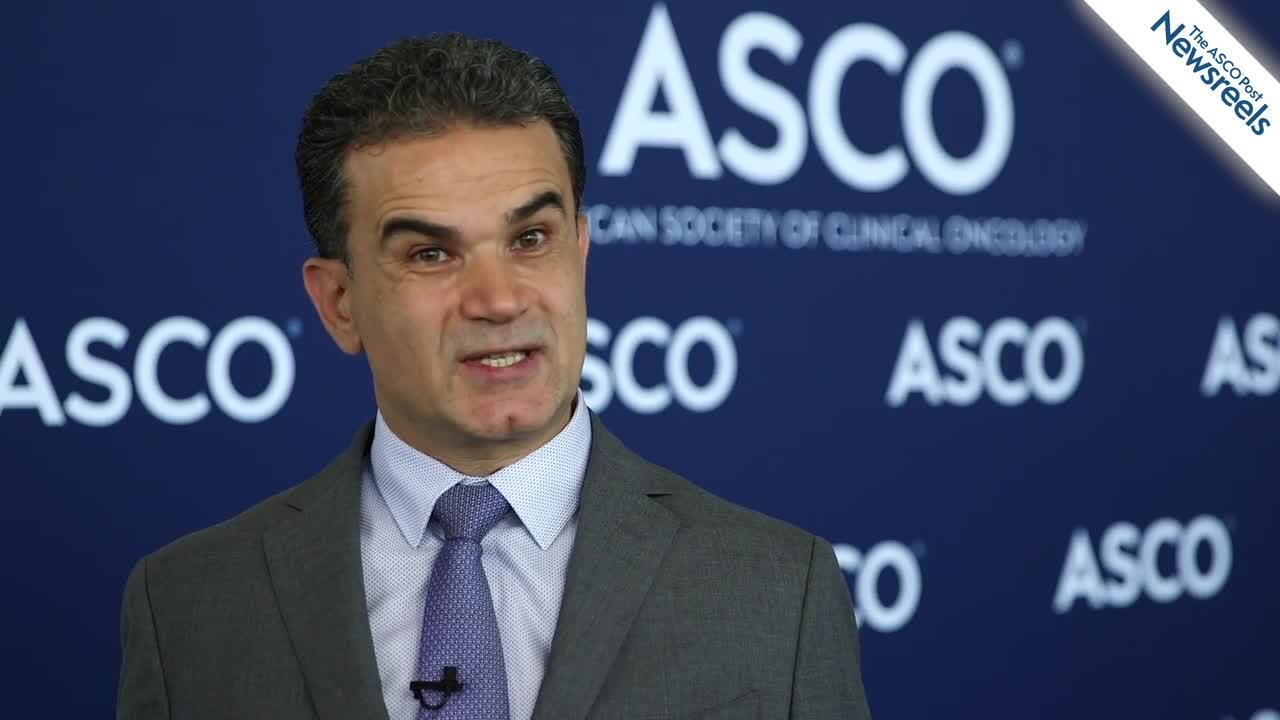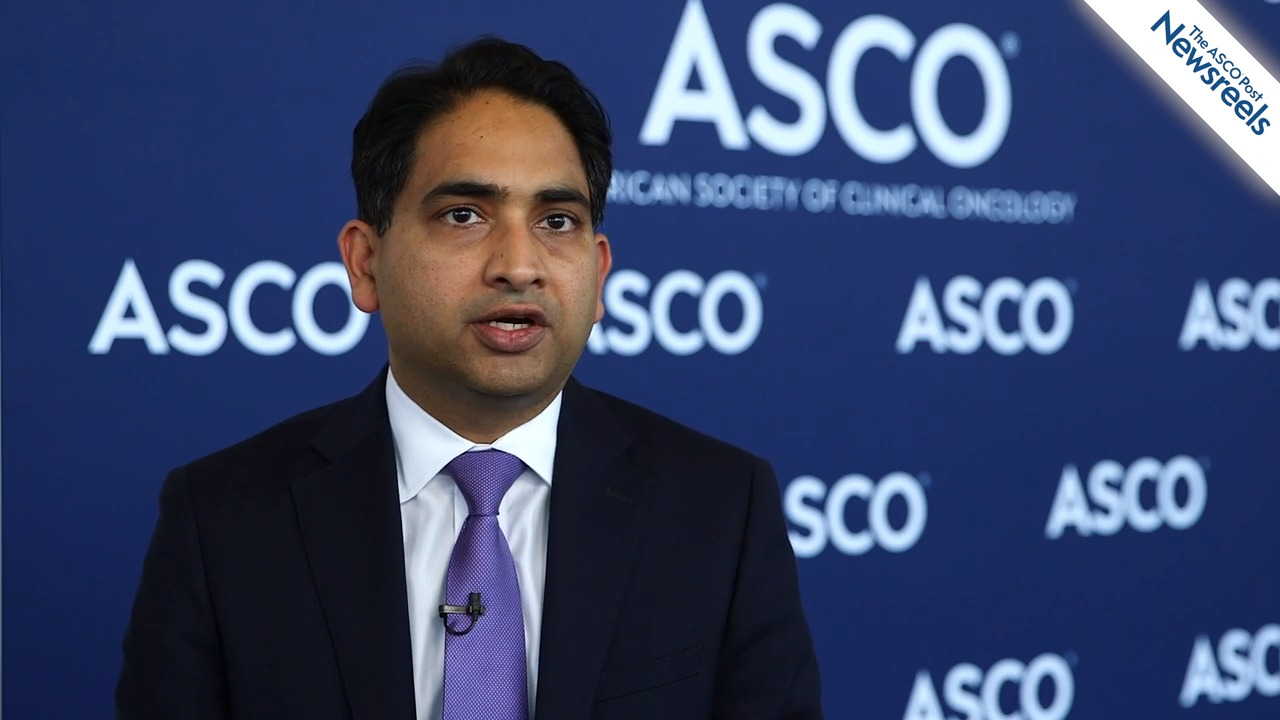Jason Westin, MD, on Diffuse Large B-Cell Lymphoma: Rituximab, Lenalidomide, and Ibrutinib Prior to Chemotherapy
2019 ASCO Annual Meeting
Jason Westin, MD, of The University of Texas MD Anderson Cancer Center, discusses findings of the Smart Start study on the chemotherapy-free combination of rituximab, lenalidomide, and ibrutinib in newly diagnosed diffuse large B-cell lymphoma (Abstract 7508).
Amy J. Davidoff, PhD, of Yale University School of Public Health, discusses study findings on how expanding access to Medicaid through the Affordable Care Act (ACA) reduced racial disparities among patients with advanced cancer. Before the ACA was implemented in 2014, black patients with cancer were less likely than white patients to receive timely treatment, but in states that did not adopt Medicaid expansion, racial disparities persist (Abstract LBA1).
Matteo Lambertini, MD, PhD, of the University of Genova and Policlinico San Martino Hospital, and Hope S. Rugo, MD, of the University of California, San Francisco, discuss findings from the SOPHIA trial on margetuximab plus chemotherapy vs trastuzumab plus chemotherapy in patients with HER2-positive metastatic breast cancer after prior anti-HER2 therapies (Abstract 1000).
Javier Sastre, MD, PhD, of Hospital Clinico San Carlos, discusses phase III findings on the assessment of circulating tumor cells as a prognostic factor and FOLFOXIRI plus bevacizumab combination outcomes for patients with poor-prognosis colorectal cancer (Abstract 3507).
Ahmad A. Tarhini, MD, PhD, of Emory University and Winship Cancer Institute, discusses phase III findings from the U.S. Intergroup E1609 trial, which showed survival benefits for patients with resected high-risk melanoma—for the first time in the history of melanoma adjuvant therapy (Abstract 9504).
Manmeet S. Ahluwalia, MD, of the Taussig Center Institute, Cleveland Clinic, discusses phase II findings on the efficacy and immunogenicity of SurVaxM, a novel cancer vaccine targeting the tumor-specific antigen survivin in newly diagnosed glioblastoma (Abstract 2016).
